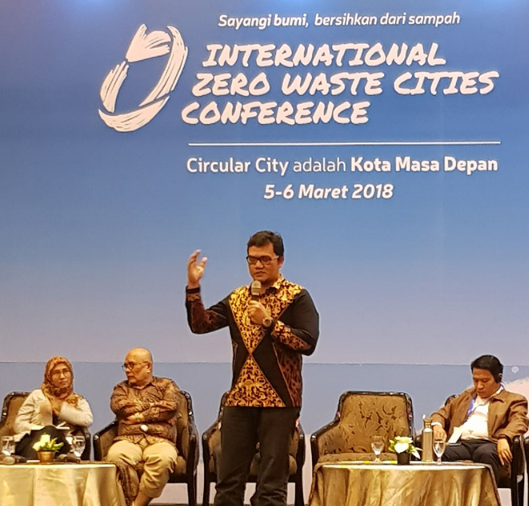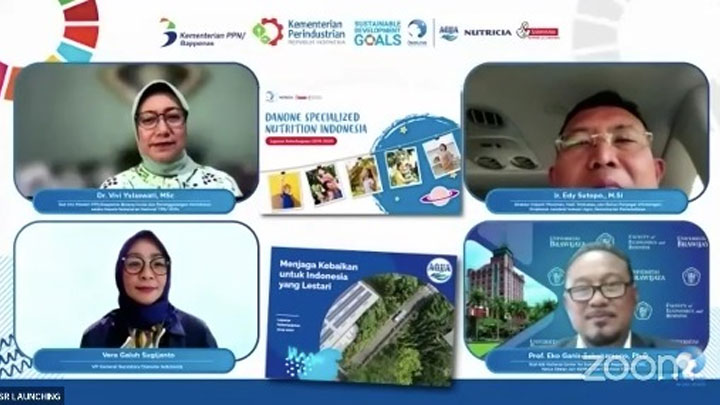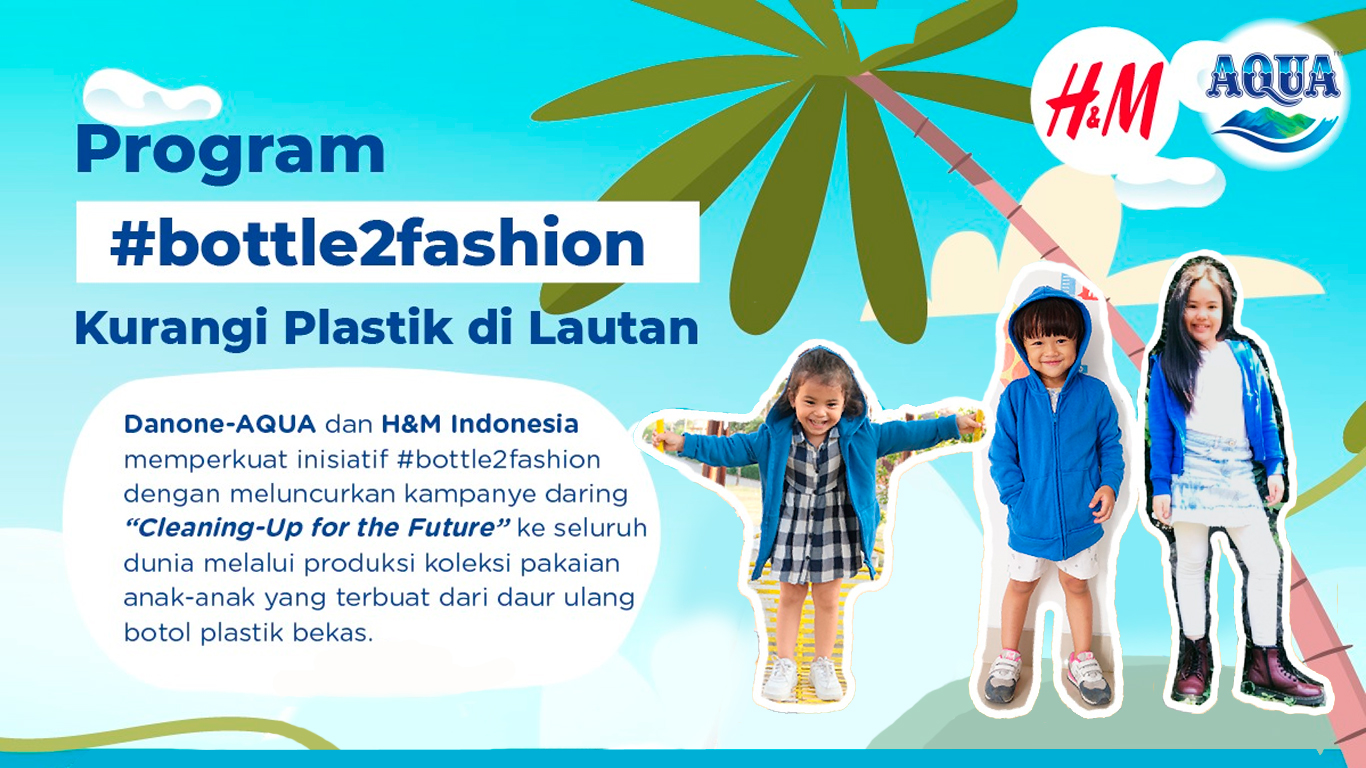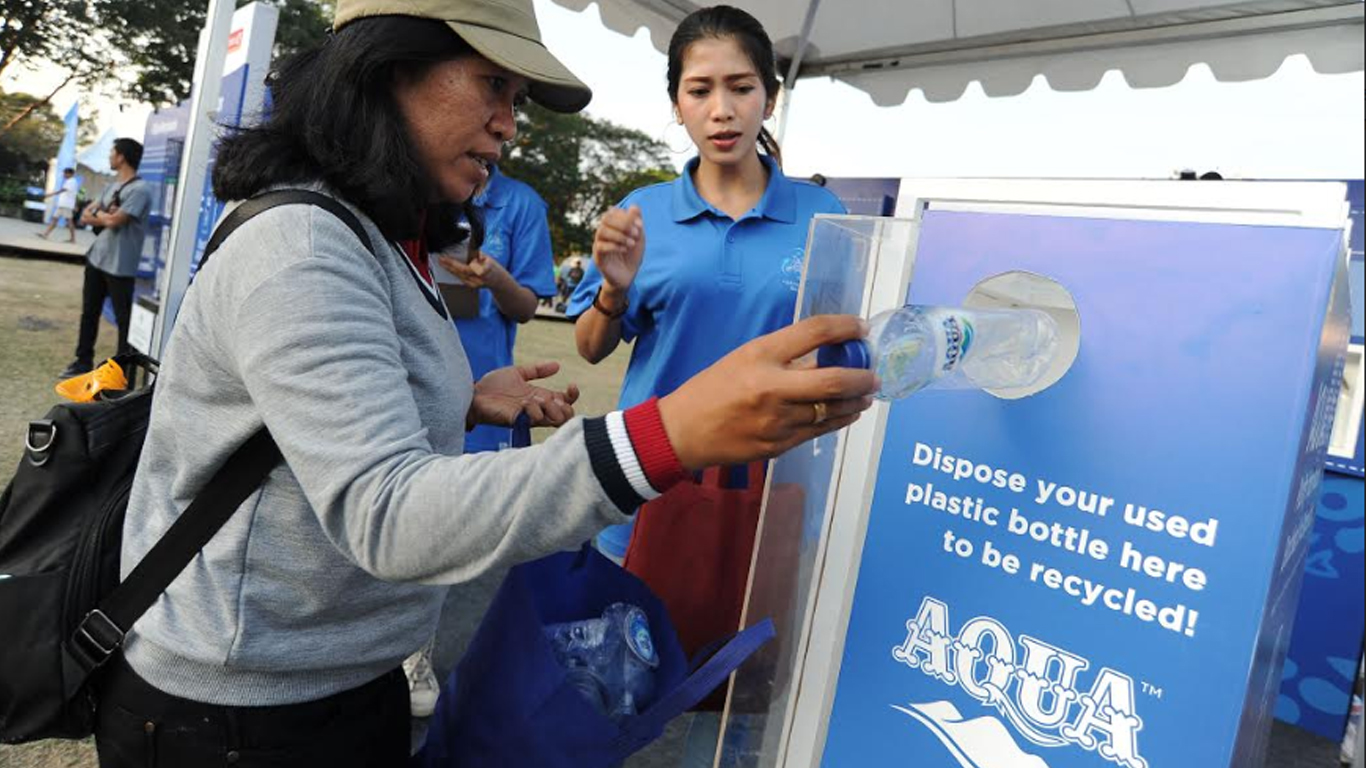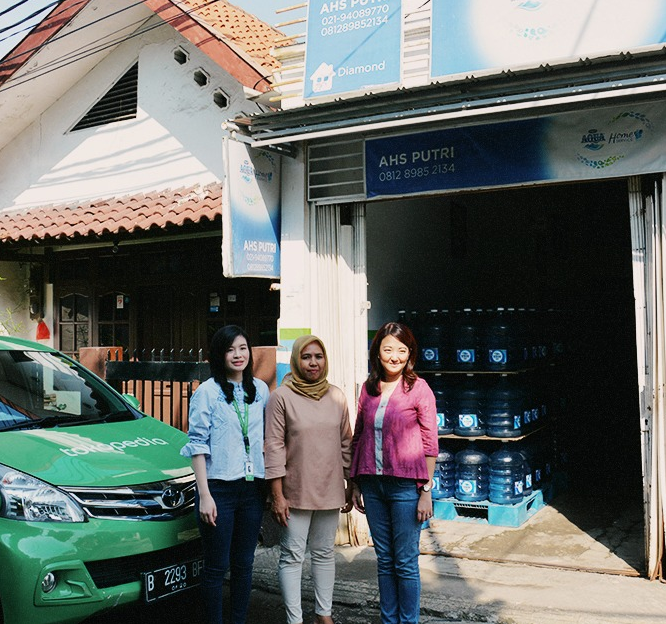Bandung, March 5, 2018 - As a Bottled Drinking Water (AMDK) and soft drink company, Danone-AQUA is committed to optimizing the use of plastics in its production system and creating a new life cycle for its packaging. This is done by reducing the rate of packaging waste in the environment and managing its product waste, in line with the company's vision, "One Planet One Health".
Speaking in a Corporate Initiatives session at the 2015 International Zero Waste Cities Conference in Bandung, Sustainable Development Director Danone Indonesia, Karyanto Wibowo explained that the active involvement of private parties is also one of the keys to the success of circular city. Moreover Danone-AQUA is committed to supporting the growing circular economy for plastic packaging in Indonesia by creating recyclable packaging and working with packaging recycling industry to create a new life cycle for packaging. "Since 2010, Danone AQUA has initiated the construction of 6 Recycling Business Units in South Tangerang, Bali, Lombok and Bandung in cooperation with Namasindo to withdraw packaging waste from the environment."
Karyanto explained that Danone-AQUA is also ambitious to recover more plastic packaging waste than it produces in 2030. "To support the ambition we are working with the Ministry of Environment and Forestry (KLHK), Bandung Institute of Technology (ITB) and Solid Waste Indonesia (SWI) conducted a research on the recycling rate of plastic waste as the foundation for our packaging management strategy, "said Karyanto.This research is also to know the performance of waste management in Indonesia where this data which later can be used by the government and others to build the model appropriate economic circular for Indonesia.
The interesting thing about Waste Flow research, Value Chain And Recycling Rate Analysis in Indonesia, presented by Dini Trisyanti - Sustainable Waste Indonesia (SWI) researcher that Recycling Rate of PET Bottle in Indonesia is 62% higher than 2 Europe (48%) and Americans (29%). "This is because PET bottles have a high selling price and have been well managed by the recycling industry. This should be developed also for other packaging that is still difficult to recycle and low value for example, multi-layer "said Dini.
Meanwhile, according to Prof Enri Damanhuri, a researcher from the Department of Environmental Engineering ITB who led the research related to Waste Flow and Packaging Collection Rate Research in Bali said that "From the research, plastic contribute 14% of waste in Bali. Of the total plastic waste in Bali, 44% have not been managed and polluted the environment, 28% entered TPA and 27% have been recycled "
Furthermore, Karyanto also explained that accurate data is expected to be a reference in formulating policies, developing solutions and technical planning that are targeted and environmentally sustainable. "The issue of plastic waste in Indonesia can only be overcome with an integrated approach, collaboration with based on recent solid waste data," he said.
The Danone-AQUA initiative to build a circular economy is the embodiment of a commitment to lead sustainable business by inspiring and facilitating good action through three pillars of goodness, namely Goodness for Nature, Goodness for People, and Good for the Community.



